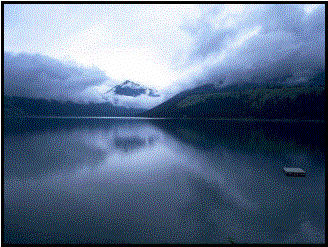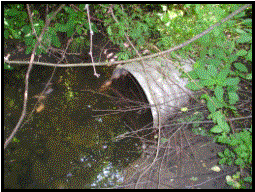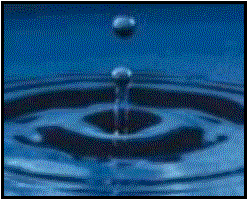To volunteer for the committee click here
What is Storm Water Pollution?
| Storm drains collect water outside of homes and businesses and channel the water directly to water ways such as local streams and rivers, untreated. More pollutants reach our waterways through the storm drains than through sewage treatment plants and industrial discharges combined.
What is Storm Water Runoff? Storm water runoff is rain or snowmelt that flows over the ground. As it flows over driveways, streets, lawns, and sidewalks; it picks up debris, chemicals, and other pollutants. Storm water flows into drainage ditches or catch basins which are part of the municipal separate storm sewer system (or MS4’s) and is discharged untreated, into our waterways. |
 |
The Effects of Pollution
Water that we use for swimming, fishing, recreation, or for drinking can be harmed by polluted storm water runoff. High bacteria levels in lakes will result in swimming bans in contaminated areas. Hazardous wastes in lakes and streams will poison fish and humans. Trash washed into these lakes and streams can choke birds and small animals.
What the Federal Government Has Done About This
In 1972 Congress enacted the Clean Water Act to prohibit the discharge of any pollutants into waters of the U.S. from a point source. Later Congress prohibited polluted storm water discharges as well. In 2003 local governments were assigned responsibility for protecting the quality of the storm water that they discharge from their MS4’s into waters of the U.S. Municipalities are now required to prepare and follow their storm water management plan. Municipalities are using best management good housekeeping practices at town-owned facilities and during vehicle maintenance to prevent leachate from polluting the storm water that exits the site.
What Westminster and Other Municipalities are Doing
The town of Westminster has created a Storm Water Committee that addresses important storm water issues. Westminster is implementing a variety of programs and procedures to protect the water. For example, the Westminster DPW cleans out catch basins regularly to keep debris out of the water ways. Also, the storm water committee has created brochures, pamphlets, and posters combining the information provided by the EPA and local information to educate the local community. Westminster will be adopting local regulations that will prohibit dumping or discharging contaminants. Westminster and other municipalities are adopting up-to-date methods to keep our water resources clean.
![]()
Pollution Prevention Tips
VEHICLE MAINTENANCE: •Wash your vehicle on an unpaved surface •Check your machinery for leaks • Recycle used motor oil • Clean up spilled fluids with absorbent material (i.e. Sand) & dispose of in the trash |
 |
LAWN AND GARDENS: •Use pesticides and fertilizers sparingly (or not at all) •Don’t fertilize when rain is in the forecast •Sweep up yard debris and compost •Cover piles of dirt and mulch •Vegetate bare spots in your yard |
LANDSCAPE DESIGN:
•Utilize porous materials, paving stones, bricks etc., instead of asphalt for walkways
•Store fertilizer, pesticides in a shed
SEPTIC SYSTEMS: •Pump your septic tank regularly (every 1-3 years) •Do not flush household chemical down your drain |
 |
SWIMMING POOLS: •Store pool chemicals in covered area •Use care to prevent leaks and spills of chemicals •Remove illegal discharge pipes from storm water drains |
HOME REPAIR:
•Sweep up and properly dispose of construction debris such as concrete and mortar
•Use hazardous materials properly
•Send dirty cleaning water down a sink or toilet- not in a storm drain
PET CARE:
•Clean up after pet by bagging or flushing
•Dispose of kitty litter in the trash
![]()
Community Volunteers Needed:
- To educate the public about storm water and pollution prevention tips
- To participate in programs and activities
- To help monitor illicit discharge sites
- To provide ideas and information about activities for preventing storm water pollution
- To participate in the Storm Water Committee
![]()
| To volunteer, or for more information email Joshua Hall at jhall@westminster-ma.gov | |
| For more local information view the MA Department of Environmental Protection (DEP) website at http://www.mass.gov/dep/water/laws/p2help.htm | |
| For National information view the Environmental Protection Agency at http://cfpub.epa.gov/npdes/home.cfm?program_id=6 |

